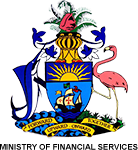 The Bahamas is experiencing a tourism-led rebound
The Bahamas is experiencing a tourism-led rebound
On May 4, 2022, the Executive Board of the International Monetary Fund (IMF) concluded the Article IV consultation with The Bahamas.
The Bahamas is experiencing a tourism-led rebound. The economy expanded by almost 14 percent in 2021, as net tourism receipts tripled relative to 2020. The strong recovery is expected to continue in 2022, with real GDP growth projected at 8 percent. The war in Ukraine, which adds considerable uncertainty to the outlook, is expected to affect The Bahamas primarily through higher commodity prices. Staff expects average inflation to increase to 6¾ percent in 2022 and to only gradually decrease as supply chain constraints wane.
The pandemic has deepened medium-term growth challenges and public finances have deteriorated. The young experienced significant learning losses, and employment will take time to recover. Additionally, there may be lasting effects of the pandemic on travel, shifts in technology and climate risks. The new administration has pledged relief through tax cuts and increasing outlays on investment and education. However, with public debt close to 100 percent of GDP amid elevated financing costs, there is limited room for maneuver.
The government seeks to rebuild fiscal buffers over the medium-term. The fiscal deficit is expected to halve this year, to about 6¾ percent of GDP. The authorities plan to achieve a medium-term fiscal surplus of 1½ percent of GDP, mainly through tax collection enhancements to reduce public debt to the target of 50 percent over the next ten years. The central bank continues to focus on preserving the peg to the U.S. dollar and phased out the pandemic-related capital flow management measures last year. The banking sector has strong capital positions, and the expiration of the pandemic-related loan moratoria led to only a small increase in non-performing loans. The current account deficit improved to 19.7 percent in 2021 in line with the tourism recovery but is expected to remain elevated in the near-term given import price pressures. International reserves remain at a comfortable level, boosted by the IMF’s new general allocation of SDRs last year.
Executive Board Assessment
Executive Directors agreed with the thrust of the staff appraisal. They welcomed the strong economic rebound, supported by the authorities’ decisive policy response and the recovery in tourism. Directors cautioned that downside risks to growth persist, including from rising inflationary pressures and pandemic-related uncertainty. In that context, Directors stressed the need to safeguard the recovery, preserve debt sustainability, and promote sustainable,inclusive, and diversified growth.
Directors emphasized the importance of rebuilding buffers and ensuring debt sustainability in the context of a medium-term fiscal consolidation plan. Noting that sizable financing needs are likely to persist, Directors also encouraged a more robust debt management strategy. They commended the authorities’ efforts to enhance revenue administration and stressed the need for a meaningful tax reform and expenditure rationalization to create space for health, education, and investment spending, as well as targeted support to the most vulnerable. Reforms of state-owned enterprises and pensions as well as improvements in fiscal transparency and accountability would be important steps to help strengthen credibility.
Directors noted that the peg to the US dollar has been an anchor for macroeconomic stability. They encouraged the central bank to allow interest rates to rise, as necessitated by market conditions. Directors highlighted that a temporary tightening of capital flow management measures could be appropriate if the global market environment deteriorated sharply. They also called for amendments to the Central Bank Act to safeguard its independence.
Directors recognized the potential of the Sand Dollar to foster financial inclusion and recommended that the central bank accelerate its education campaigns and continue strengthening internal capacity and oversight. A robust supervisory and regulatory framework for the growing virtual assets sector would also be important.
Noting the resilient financial sector, Directors highlighted the importance of further strengthening bank recovery and resolution and the AML/CFT frameworks. They encouraged measures to update the supervisory framework for bank intervention to ensure effective utilization of early warning indicators.
Directors emphasized that well-targeted structural reforms would enhance productivity and resilience. They called for measures to address education gaps and the expected slow recovery in private investment. Directors recommended advancing energy sector reforms and modernizing public services. They called for strong efforts to address vulnerabilities to climate change and natural disasters, including through a comprehensive disaster resilience strategy, and highlighted the important role of the donor community.
Click here to read the document in its entirety.



